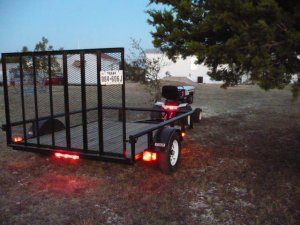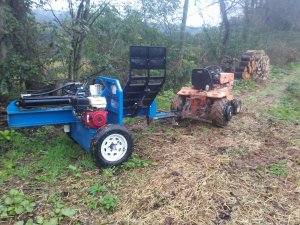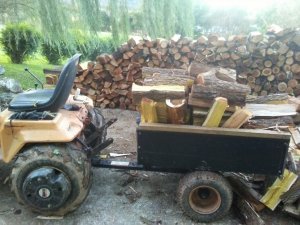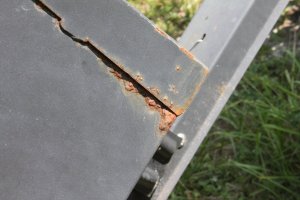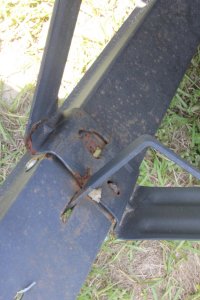Having the hitch high is leverage on the rotation force. Having a high hitch can seem to be OK as long as everything is smooth & easy. The problem comes when everything seems fine & your are moving at a comfortable speed then something happens tire goes flat or drops in a hole even problems with wheel bearings on what you are towing. It is that sudden instant drag that flips the tractor on its top. My Grandfather used to preach that to us all the time. Probably one the strangest instants where this happened was a young farmer was using a chain to pull something. He finished his task & threw the chain up in front of the seat post on the floor. This was back before farm tractors had cabs. He was headed home had the tractor in road gear & one end of the chain falls off the back of the tractor. The hook on the end of the chain grabs a root. It just happens that the other end of the chain caught on the seat post. The farmer was killed instantly as the tractor flips. Remember the rear wheels are the drive wheels & most times are set to have lots of traction. It is something to always remember even when you are only using a garden tractor, you are sitting on the pivot point . Not to get off of the topic but when I see things talking about hitches & the height of the hitch it makes me uncomfortable even when I am not involved with it.
Charlie
This is a great discussion, Though I have only the tractor experience this forum is witnessing, not much I know, I do have a career worth in military track or wheeled, I possess a private pilot license (VFR, not IFR) and of course my other toys, such as jet ski's and/or boats. I don't want to give the wrong impression here with military vehicles, just that my experience as a whole with trailers and flight does influence my awareness of load, balance and terrain. In my experience a load shift with the right amount out of balance will make for a bad day faster than most people can react.

I do plan on using my GT as a trailer tug but not until I redesign my front end and build adapters for front and rear UTV/ATV disc brakes with a parking or locking brake on the disc. Just my comfort level with the weight being towed on a machine I just pulled out of the glorified lawn mower category.
The K66 on its internal weak brake is rated at 243 ft-lbs of brake force that tugging a heavier trailer could or most likely burn the viscosity out of the oil in no time, not to mention just plain fail.
The Tuff Torq K66 (considering proper oil maintenance) has a max axle torque rating with the 23" tire diameter (37.22:1 ratio gears) of 310 ft-lbs. I consider most common mid-size tow vehicles develop approximately the same amount of torque, so tugging a 2000 lb trailer slowly is possible with some careful considerations.
If it is my boat, as an example, it weighs 2000 lb total, including fuel, and has a tongue weight of 180 lbs. I am considering adapting the front (bucket removal) to a quick hitch of some kind to make use of the 1200 lb actuator and the weight put on the front axle to avoid rear axle, short wheelbase problems.
This idea will be examined thoroughly like most things I do (I don't like surprises) and I'm probably a year from this project right now, but I'm already putting it to paper now. Maybe this is a terrible idea, for a reason that more skill/ experience will teach? Maybe I'm overthinking the short wheelbase issue? But the rear tail light is slick and that has moved up to the top of my list.

